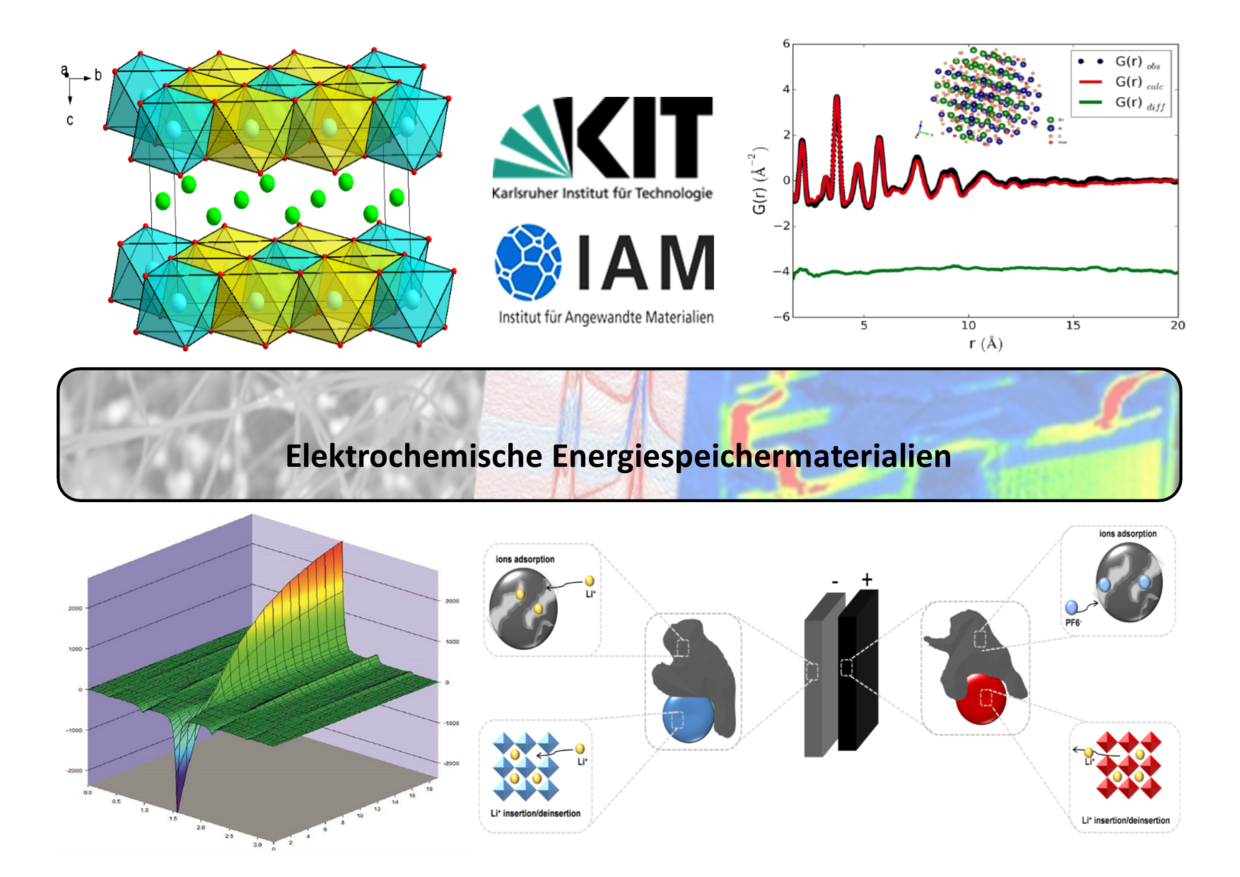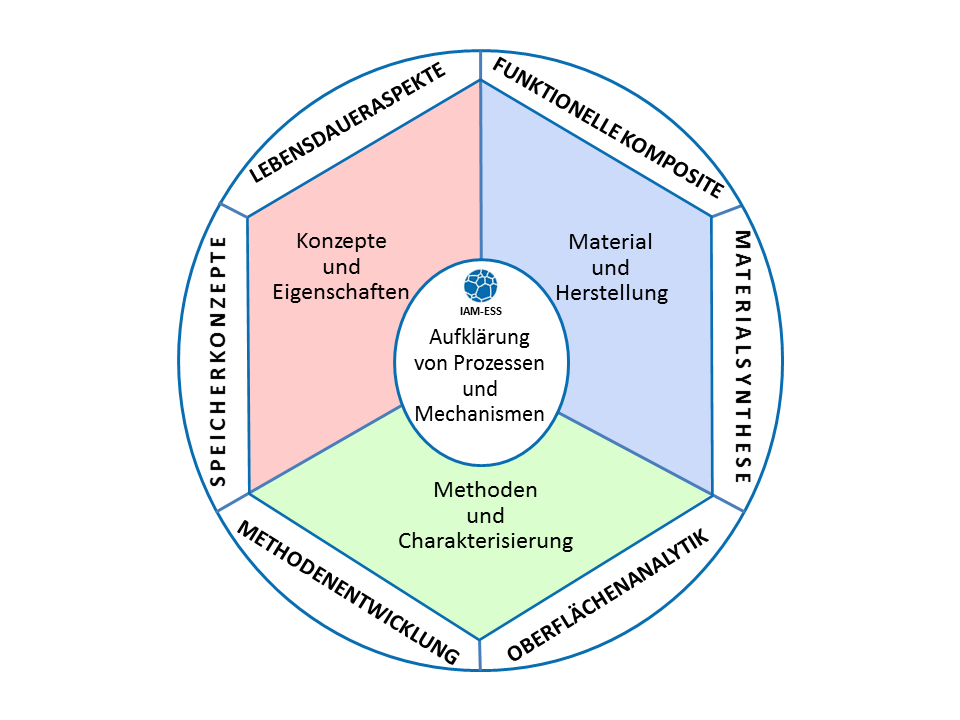The IAM-ESS
The Institute for Applied Materials - Energy Storage Systems at KIT deals with the production of novel materials for energy storage, such as for Li-ion batteries and post-lithium systems, as well as the research in the processes involved in energy storage, the manufacture and testing of electrodes and cells.
The institute is also part of the Institute for Inorganic Chemistry: Materials Research for Novel Energy Storage Systems (AK Ehrenberg).
In addition to the laboratory equipment required for research, the institute also has access to large scale research facilities such as neutron and synchrotron radiation sources. In cooperation with these facilities, the institute develops in-situ and in-operando techniques to investigate specific aspects in materials as well as complete, commercial devices.

The institute is also part of the Institute for Inorganic Chemistry: Materials Research for Novel Energy Storage Systems (AK Ehrenberg).
In addition to the laboratory equipment required for research, the institute also has access to large scale research facilities such as neutron and synchrotron radiation sources. In cooperation with these facilities, the institute develops in-situ and in-operando techniques to investigate specific aspects in materials as well as complete, commercial devices.

To increase the efficiency of energy storage systems for applications in wind and solar energy or in the field of electromobility a long service life of storage systems is required. It is, therefore, important to study mechanisms of aging and degradation in order to develop lifespan models as accurate as possible. The investigations are carried out both, in-situ and post-mortem. Starting with the material analysis to setting up of models, the institute cooperates with partners from industry and other research institutes. Further points of interest of the institute are the development of new materials and storage systems, the investigation of so-called redox flow storage devices and the development of methods for the efficient investigation of entire components under in-operando conditions. The manufacture of electrodes and cells are also a part of research, as well as material development for fusion research.
